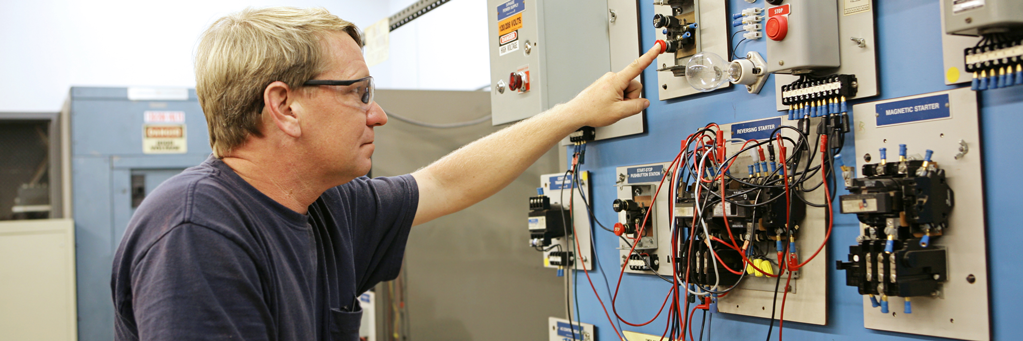
Discover the Advantages of Joining an Electrical Union as an Apprentice
Union Apprenticeship Through IBEW 567- NECA Portland Joint Apprenticeship & Training Committee (PJATC)
One of the coolest things about starting a career as an electrician is men and women receive paid on-the-job training in the form of a registered apprenticeship. Electrical apprentices gain more skills and experience over the four years it takes to complete IBEW 567’s apprenticeship program than other paths to begin an electrical career. Additionally, as our apprentices progress through their apprenticeship, they receive pay raises reflective of their new skills and education.
When looking to start down a career path in the electrical trades, the big decision an aspiring electrician must make is whether to join a registered apprenticeship program operated by the International Brotherhood of Electrical Workers (IBEW) and become part of the long-standing tradition of unionized tradesmen, or try to find a less structured path with a non-union shop looking to take on a trainee.
The contrast between the two is vastly different.
Non-union apprentices do not receive the wages, health insurance, retirement benefits and the industry-leading training offered through a registered union apprenticeship.
Electrical union apprenticeship programs affiliated with signatory electrical contractor companies are coordinated through Joint Apprenticeship and Training Committees (JATCs), which have multiple offices in every state to cover virtually the entire nation. JATCs are a partnership between local chapters of the IBEW and the National Electrical Contractors Association (NECA), assisted by the Electrical Training Alliance.
Participating in a registered apprenticeship with the IBEW means becoming a life-long, card-carrying, dues-paying member of a prestigious union, where you will receive all the benefits and collective bargaining rights that come along with it.
Why Pick an IBEW Career Over College?
- Average Total Cost of Public Colleges: $25,290 (in-state) $40,940 (out-of-state).
- Average Total Cost of Private Colleges: $50,900.
- The average cost of community college is $4,864 (in-state) and $8,622 (out-of-state) per year for public community colleges. For private community colleges, the average tuition is around $15,460 per year.
- No guarantee you will work in your field of study.
- No health insurance or retirement benefits.
- Average student loan debt is $31,172 and increasing.
- The college/university will not help you find a job upon graduation.
- There is no tuition for a IBEW 567/PJATC apprenticeship. The only costs are books (roughly $600) and hand tools.
- You are debt free upon completing your apprenticeship (certain terms do apply).
- Apprentices earn while they learn. This means they earn a livable wage, while learning their trade.
- Scheduled raises upon hours completed throughout your apprenticeship.
- The PJATC Scholarship Program (not everyone is eligible) can be used by apprentices for the following: Childcare, transportation, books, supplies, equipment and remedial and prerequisite training.
- Health Insurance once eligible (which will be after 140 hours on the job) and Pension Starts once a period 2 apprentice (which is at 1000 hours) and increases as you progress (based on hours worked)
- Job placement throughout your career.
- First-year apprentices earn more than most first year college graduates.
If you are ready to join our apprenticeship program, please click here to create an account in Tradeschool. Once your account is approved, you will be able to fill out an electronic application.

